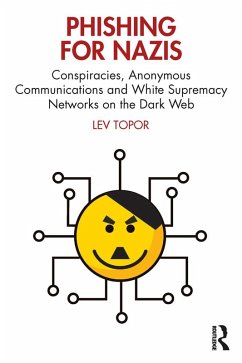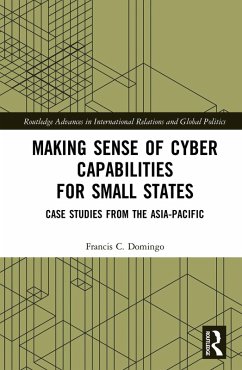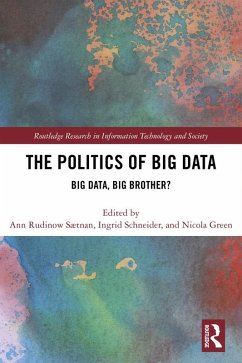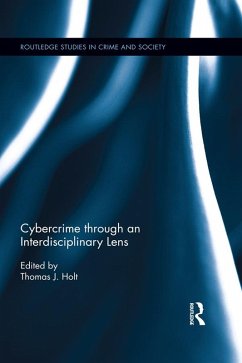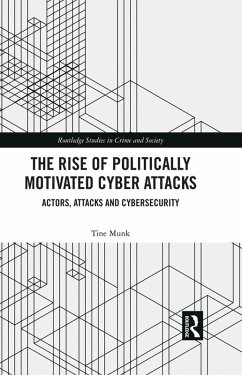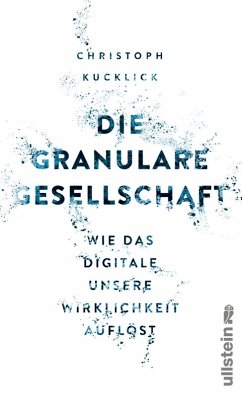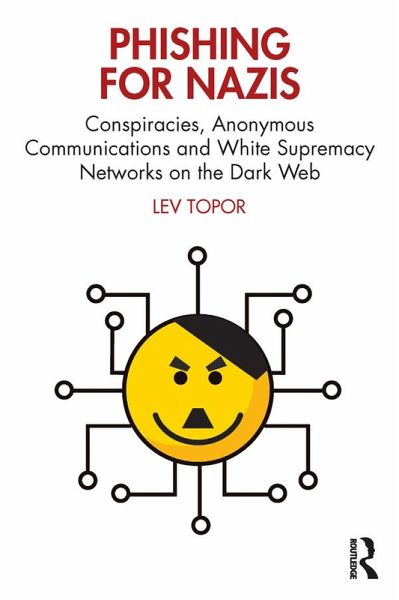
Phishing for Nazis (eBook, ePUB)
Conspiracies, Anonymous Communications and White Supremacy Networks on the Dark Web
Versandkostenfrei!
Sofort per Download lieferbar
35,95 €
inkl. MwSt.
Weitere Ausgaben:

PAYBACK Punkte
18 °P sammeln!
Phishing for Nazis is an evidence-based, undercover study of neo-Nazi communities on anonymous communication platforms that helps to shine a light on the dark web. It unveils how hatred and conspiracies spread and thrive online and how white supremacy is becoming prominent as extremists find shelter in the online dank underbelly of society.Phishing for Nazis explains how online manifestations of hate radicalize people into taking "real-world" action, such as shooting sprees. Methodologically, this book is unique, as it incorporates undercover cyberethnography, a method frequently used by law e...
Phishing for Nazis is an evidence-based, undercover study of neo-Nazi communities on anonymous communication platforms that helps to shine a light on the dark web. It unveils how hatred and conspiracies spread and thrive online and how white supremacy is becoming prominent as extremists find shelter in the online dank underbelly of society.
Phishing for Nazis explains how online manifestations of hate radicalize people into taking "real-world" action, such as shooting sprees. Methodologically, this book is unique, as it incorporates undercover cyberethnography, a method frequently used by law enforcement and intelligence agencies, unlike traditional academic studies of racism or social behavior that rely on secondary sources or surveys.
With a particular interest on how race issues translate online, the book presents the true phenomenon of racism without relying on political correctness or whitewashing. It contributes to the field of cyber communication, as it details why and how people communicate and manage entire communities without knowing one another. The book also contributes to public policy, regulators, and technology companies as they deal with the practice of online anonymity and extremism.
Phishing for Nazis explains how online manifestations of hate radicalize people into taking "real-world" action, such as shooting sprees. Methodologically, this book is unique, as it incorporates undercover cyberethnography, a method frequently used by law enforcement and intelligence agencies, unlike traditional academic studies of racism or social behavior that rely on secondary sources or surveys.
With a particular interest on how race issues translate online, the book presents the true phenomenon of racism without relying on political correctness or whitewashing. It contributes to the field of cyber communication, as it details why and how people communicate and manage entire communities without knowing one another. The book also contributes to public policy, regulators, and technology companies as they deal with the practice of online anonymity and extremism.
Dieser Download kann aus rechtlichen Gründen nur mit Rechnungsadresse in A, B, BG, CY, CZ, D, DK, EW, E, FIN, F, GR, HR, H, IRL, I, LT, L, LR, M, NL, PL, P, R, S, SLO, SK ausgeliefert werden.




